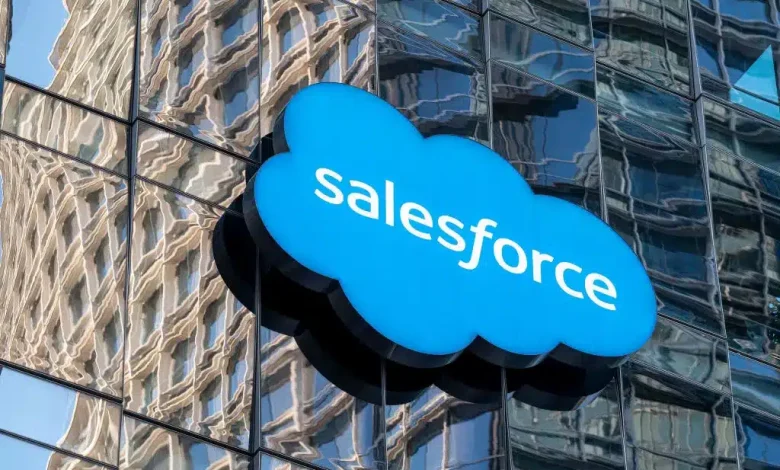Salesforce eyes Nigeria’s growing talent pool as it expands in Africa

Salesforce, the American tech giant behind Slack, has unveiled its ambitious strategy for Nigeria, focusing on talent development as a key pillar of its expansion into Africa. The company, which is renowned for its customer relationship management (CRM) software, views the country’s vast youth population as an opportunity to nurture local professionals and integrate them into the global workforce.
During her recent visit to Nigeria, Ursula Fear, Salesforce’s Senior Talent Program Manager, explained that the company’s approach goes beyond market expansion. “We want to create a shift where individuals take ownership of their learning journeys,” she said. By prioritising skill-building and fostering a self-sustaining community, Salesforce aims to drive innovation and growth not only for itself but also for Nigeria’s broader tech ecosystem.
With more than 60% of Africa’s population under the age of 25, and Nigeria contributing significantly to this statistic, the country represents a key market for Salesforce. However, unemployment and skills gaps remain barriers, prompting experts to urge professionals to dedicate at least one hour daily to upskilling.
Salesforce has already made strides in Africa, establishing a presence in South Africa and Morocco, and recently making a strong entrance into Kenya and Egypt. Now, the company has focused on Nigeria with the hire of a business development lead. This strategic move is part of a larger effort to tap into Nigeria’s growing digital economy, especially as the adoption of tools like Slack and Tableau by local businesses continues to rise.
Despite the competition from established players like Zoho and Microsoft, who have already made inroads into Nigeria’s CRM market, Salesforce’s unique approach is gaining traction. Within just three months, the company secured its largest Slack client in Africa, showcasing the potential of its talent-driven strategy.
At the heart of this strategy is Trailhead, Salesforce’s free, gamified e-learning platform. Trailhead enables both beginners and advanced learners to earn globally recognised certifications in Salesforce tools, data analytics, and even soft skills. Fear emphasised the importance of soft skills, stating, “The biggest part of your success is behavioral skills…without this, it becomes more difficult to navigate a constantly changing professional environment.”
Beyond Trailhead, Salesforce is also building communities through its Trailblazer Community. These autonomous groups are supported with resources and funding, fostering skill-building, mentorship, and networking. Regular conferences like West Africa Dreamin’ bring together talent, mentors, and partners, helping to bridge the skills gap and connect emerging professionals with industry leaders.
One of the key success stories from the Salesforce ecosystem is Dangsenpenan Nokshuwan, a Nigerian-born Salesforce Business Analyst. He transitioned from a project management role at MainOne in Lagos to his current career in the UK after immersing himself in Salesforce courses. Nokshuwan’s journey is a testament to the transformative power of upskilling, and today, he serves as the lead organiser for the West Africa Dreamin’ conference, dedicated to growing the Salesforce community on the continent.
Despite the promise of these initiatives, challenges like unemployment and placing skilled talent remain. However, Fear is confident that Salesforce’s ecosystem approach will yield long-term solutions. “We don’t know what is possible until we try,” she said, underscoring the company’s commitment to building innovative, sustainable solutions for the local workforce.
Through its partnership with local businesses and mentors, Salesforce is helping to create a space where skilled talent can thrive, even without guaranteeing direct job placement. The company’s approach to community-building and human capital development goes hand in hand with its broader mission to empower individuals to participate in the global digital economy.
While it may take some time before Salesforce introduces product subscriptions in Nigerian currency, the company’s focus on developing local talent is clear. This strategy isn’t just a business move; it’s a long-term investment in the future of Nigeria’s workforce. By investing in human capital, Salesforce is helping to shape a more innovative, digitally empowered Nigeria and Africa as a whole.





